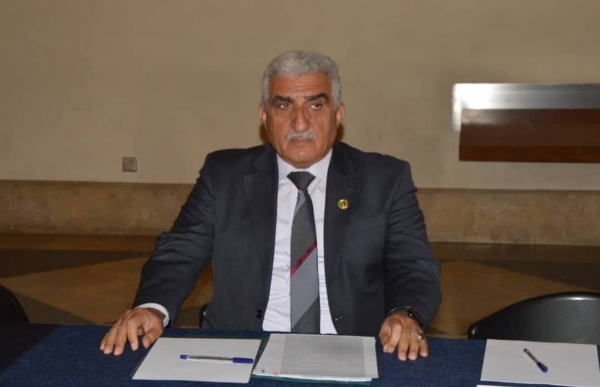
[ad_1]

Obeid: The center’s experts prepare scenarios to adapt to this phenomenon and monitor changes and response mechanisms.
Series of steps:
Dr. Nasr al-Din al-Obaid, Director General of the Arab Center for Arid Zones and Dry Lands (ACSAD), participated today, Thursday, in a conference at Damascus University entitled “Climate Transformation…Challenges and Responses”, opened by Prime Minister Hussein Anous and attended by the Syrian Minister of Agriculture and Reform, the Director General of the Arab Center for Arid Zones and Dry Lands (ACSAD) and heads of several organizations, alliances and researchers.
The director of the Syrian Arab Research Center said in a press statement that the seminar included presentations on climate change indicators and their future readings, as well as the impact of climate change on water resources and agricultural production in the Syrian Arab Republic, noting that the center’s experts prepared a number of scenarios for adaptation to the phenomenon and monitoring of changes and coping mechanisms.
Obeid added that the Centre has been prioritizing climate change issues since 2010 and has implemented an advanced strategy through annual action plans, one of the main focuses of which is the impacts and adaptation of climate change in the Arab region.
The Director of the Arab Centre for the Study of Arid Zones and Drylands, explained that the Arab Centre for the Study of Arid Zones and Drylands is a main partner in the “RICCAR” initiative, which has created for the first time a database on climate change in the Arab region and identified expected future changes in rainfall and temperature until 2050.
Obeid noted that the Arab Center for Drought Research published its findings to determine the impact of these changes on surface and groundwater resources, as well as major rivers, as the flow of the Euphrates and Tigris rivers is expected to decrease by about 20 percent due to climate change.
The director of the Arab Center for Drought Research pointed out that the center’s studies on climate change confirmed the impact of the phenomenon on crop productivity and its water requirements in the Arab region, noting that different programs have been prepared to cope with the phenomenon, reduce its impact on the agricultural sector and develop field crop varieties that are more tolerant to these impacts.
Obeid explained that the ACSAD experts present at the workshop reviewed the organization’s work in developing a variety of approaches to adapting to climate change, including the dissemination of rainwater harvesting technologies, improving irrigation efficiency, using mathematical models to manage groundwater, and applying agricultural systems. Clipboard.
Dr. Obeid confirmed that the Centre’s experts have successfully developed a number of drought-resistant wheat and barley varieties and promoted the cultivation of drought-resistant fruit trees, such as olives, almonds and pistachios, thereby contributing to achieving Arab food and water security, moving towards flexible and sustainable food systems, and addressing the potential impacts of climate change, and working to build Arab capacity in these areas.





| Share via comments: |
[ad_2]
Source link

